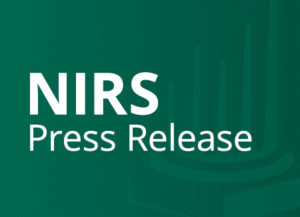WASHINGTON, D.C., December 5, 2012 – Faced with financial pressures, 45 states have enacted defined benefit (DB) pension plan reforms since 2008 to achieve affordability, sustainability, and human resource goals rather than switching to 401(k) type defined contribution (DC) accounts.
PENSION PLAN MODIFICATIONS PROVIDE SUSTAINABILITY
Shifting From Pensions Not Optimal, Can Trigger Unintended Consequences
Webinar on Wednesday, December 5th at 11 AM ET to review the findings. Register here.
WASHINGTON, D.C., December 5, 2012 – Faced with financial pressures, 45 states have enacted defined benefit (DB) pension plan reforms since 2008 to achieve affordability, sustainability, and human resource goals rather than switching to 401(k) type defined contribution (DC) accounts. Closing a defined benefit pension plan can cost substantially more than adjusting an existing plan. Additionally, scaling back pensions can have destabilizing economic impacts, erode retirement security, and harm the workforce.
These findings are contained in a new research issue brief, “On the Right Track? Public Pension Reforms in the Wake of the Financial Crisis,” conducted by the National Institute on Retirement Security. It examines key factors that have contributed to private and public employers’ pension decisions, and builds upon a 2008 analysis, “Look Before You Leap ” documenting costs associated with closing a pension plan.
NIRS will host a webinar on Wednesday, December 5th at 11 AM ET to review the findings. Register here or at https://www2.gotomeeting.com/register/244509770.
Download the research here.
The research is consistent with recent U.S. Chamber of Commerce findings that many private employers remain committed to pensions as an important part of compensation package plans, and that pensions are an integral part of the national economy while provide retirement security. (1) Today, almost 30,000 single and multiemployer defined benefit plans cover roughly 44 million private sector plan participants. In the public sector, some 20 million participants have a pension benefit.
“The financial crisis has forced private and public sector employers to carefully re-examine all of their costs including funding of pension plans,” said Diane Oakley, executive director of NIRS and report co-author. “There isn’t a one-size-fits-all solution. So it’s not surprising that state governments, like many of their large private sector counterparts, remain committed to DB pensions. States find that modifying existing pensions provides a sustainable solution when they see the steep costs of a wholesale shift to individual DC accounts like 401(k) plans.”
“There is a disconnect in the retirement policy debate,” remarked Nari Rhee, study co-author and NIRS manager of research. “The data reveal that most individual DC accounts are severely underfunded and can’t do the job alone. Yet, these plans are positioned as the retirement solution despite the evidence that Americans are going to fall short in the income needed to pay basic expenses in retirement.” Rhee explained, “Our research reveals that policymakers are carefully weighing the implications of a shift, and prudently enacting sustainability changes so they can continue to offer pensions.”
In commenting on the report’s findings, former Congressman Earl Pomeroy (D-ND) said, “Most states are taking a smart, pragmatic approach. State leaders know that pensions enable Americans to be self-sufficient in retirement while providing employers with a cost-efficient, important workforce management tool that stimulates the economy.”
The most common public pension plan modifications that have been implemented are increased employee contributions; reduced DB benefits for new hires including changes to retirement ages; and cost of living adjustment reductions for retirees and existing workers. More specifically, the report finds:
- Distinct business and labor market dynamics and regulatory pressures led to the decline of pensions in the private sector that do not necessarily apply to governments.
- A policy of closing or freezing pensions and switching to DC accounts is not necessarily the best approach for government employers and taxpayers. Recognizing this, states are modifying their pensions to ensure long-term sustainability.
- Freezing or closing DB plans and shifting to DC-only accounts threatens workers’ retirement security, with mid-career employees being the hardest hit.
- Because pensions play an important role in public sector compensation, freezing or closing DB plans and shifting to DC accounts may negatively affect the ability of public employers to recruit and retain qualified workers.
The full issue brief is available here.
(1) Private Retirement Benefits in the 21st Century: A Path Forward U. S, Chamber of Commerce 2012, Washington, DC
The National Institute on Retirement Security (www.nirsonline.org ) is a non-profit organization established to contribute to informed policymaking by fostering a deep understanding of the value of retirement security to employees, employers, and the economy through national research and education programs. Located in Washington, D.C., NIRS has a diverse membership of organizations interested in retirement including financial services firms, employee benefit plans, trade associations, and other retirement service providers.
Contact: Kelly Kenneally 202.457.8190 o; 202.256.1445 m kkenneally@nirsonline.org ##
